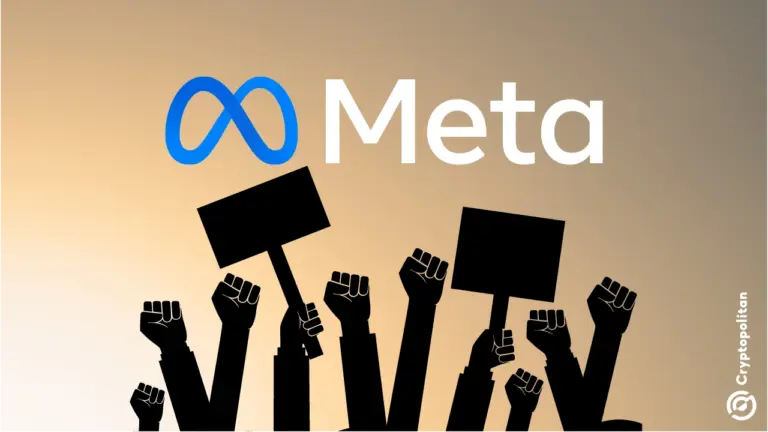Bitcoin HODL Tax: Relief for Miners or Diamond Hand Penalty?
- Post-halving sees Bitcoin miners struggling to stay afloat.
- A ‘HODL tax‘ would force long-term holders to subsidize miners.
- The ‘HODL tax‘ proposal has sparked widespread pushback.
Bitcoin miners play a critical role in maintaining the network. However, the recent halving event , which cut block rewards from 6.25 to 3.125 BTC, has intensified their financial pressure. With reduced income from newly minted coins, many miners are finding it increasingly difficult to cover operational costs and remain profitable.
In response to these mounting concerns, Bitcoin Magazine recently published an opinion piece proposing a ‘HODL tax’ to subsidize miners. This suggestion has sparked intense debate within the Bitcoin community. While some view it as a potential lifeline for struggling miners, others see it as a fundamental departure from Bitcoin’s core principles.
Bitcoin Community Push Back
The HODL tax proposal has ignited a firestorm of debate within the Bitcoin community. Designed to support miners in the wake of the halving, the proposal seeks to implement a fee on dormant Bitcoin addresses to subsidize mining operations. However, this idea has been met with significant resistance from many Bitcoin enthusiasts and industry figures.
Sponsored
Peter McCormack, host of the What Bitcoin Did Podcast, weighed in on the controversy, acknowledging the importance of publishing opinion pieces to stimulate discussion, and called on his followers to share their opinions. Alex Bergeron, a writer for Bitcoin Magazine, responded to McCormack, stating there’s ‘No better deterrent for a stupid idea than shining some light on it,’ to which McCormack agreed .
Investor Fred Krueger sarcastically commented , ‘Where do all these brilliant ideas come from?’ Colin Talks Crypto dismissed it as ‘dumb and uninformed’ while referring to a post by Satoshi Nakamoto, who had suggested 15 years ago that market-determined transaction fees should replace diminishing block rewards, not a tax on long-term holders.
Despite widespread criticism from prominent voices in the Bitcoin community, the HODL tax remains an attempt to ensure the network’s long-term sustainability.
Here’s How the HODL Tax Works
Bitcoin Magazine’s HODL tax proposal aims to align incentives between miners and holders while encouraging more active network usage. The proposal suggests protocol changes to take funds from dormant wallets and redistribute them to miners, forcing long-term holders to contribute to the network’s upkeep.
Sponsored
Under the proposal, addresses with no activity for approximately one year (52,500 blocks) would be subject to a fee equal to 50% of the median transaction fee from the previous two weeks. This mechanism would, it was argued, provide additional income for miners while also cleaning up “dust” accounts and gradually returning lost coins to circulation.
The proposal is framed as a means of ensuring miners can maintain network security even if transaction volumes decline by having long-term holders pay their way.
On the Flipside
- Bitcoin‘s daily mining revenue plummeted to $23.5 million on June 23, a 78% decline from the year-to-date high of $107.8 million recorded on April 20.
- Some would argue that Bitcoin‘s value proposition as “digital gold” relies on its ability to be held without fees or penalties.
Why This Matters
Though proposals like the HODL tax may not gain traction, this situation highlighted the need for innovative solutions to ensure Bitcoin’s long-term viability.
Bitcoin’s new Runes token standard flops, piling pressure on miners:
Bitcoin Runes Screech to a Halt, Transactions Plummet by 90%
Bitcoin Cash’s hash rate skyrockets, sparking intrigue about what’s happening:
Bitcoin Cash Hash Rate 2Xs Overnight as ‘Phoenix’ Launches
Disclaimer: The content of this article solely reflects the author's opinion and does not represent the platform in any capacity. This article is not intended to serve as a reference for making investment decisions.
You may also like
Hackers are targeting Australia’s largest pension funds
Share link:In this post: Hackers targeted major Australian superannuation funds, stealing $500,000 from a few accounts and exposing personal data. Authorities and financial institutions are responding to the breach, urging members to check accounts and update passwords. Credential stuffing using stolen passwords is suspected in the attacks, prompting warnings to use unique logins and enable multifactor authentication.
Meta to end third-party fact-checking in U.S. on April 7
Share link:In this post: Meta will shut down its U.S. third-party fact-checking program on April 7, 2025, ending partnerships with groups like PolitiFact. It will be replaced by Community Notes, a system that lets users add context to posts without triggering penalties. Zuckerberg criticized the old system as biased and overly censorious, and said the change aims to support free speech. Meta is also relocating its moderation teams to Texas, a move some experts say is politically motivated.

Crypto Today: Altcoins Find New Buyers as Microsoft, Apple and Nvidia Lose $1 Trillion in 3 Days
Cardano Approaching First Death Cross: What’s Next for ADA Price?
